
They arrived with no warning, striking swiftly as a guillotine blade. As dawn broke over France on Friday 13 October 1307, hundreds of royal troops stormed the residences of Templar knights, rounded up the brethren and put them in chains.
The knights were caught completely unawares – and the charges that were set out against them were extraordinary. Allegations included participating in Satanic initiation ceremonies; spitting or trampling on the crucifix; worshipping idols; and kissing their brothers on the navel, penis, lips and anus in profane masses.
It was a spectacular fall from grace for the Knights Templar, a military-religious order that had long been esteemed across Europe and beyond. For nearly two centuries, since the order’s foundation in Jerusalem c1119 (see box, right), the Templars had been charged with defending residents of, and pilgrims to, the crusader states of the Middle East. Once celebrated across the Christian world for their unwavering courage in battle and the zeal with which they served God, suddenly they were being reviled and attacked. How and why did this dramatic collapse in fortunes come about?
The driving force behind the assault on the Templars was France’s King Philip IV, ‘the Fair’. Philip was outwardly pious, but also in great need of cash. Indeed, he had a track record of crushing minority groups in pursuit of easy money. In the early 1290s, he had arrested all of the so-called Lombard bankers – Italian moneylenders – in France, and confiscated their goods. And in 1306, he had expelled France’s Jewish community and seized their assets.
Now he turned his sights on the Templars – another reputedly wealthy group. Pope Clement V was coerced into acquiescence and, in 1307, the pontiff ordered the Templars’ arrest. The torture now began.
この記事は BBC History UK の October 2023 版に掲載されています。
7 日間の Magzter GOLD 無料トライアルを開始して、何千もの厳選されたプレミアム ストーリー、9,000 以上の雑誌や新聞にアクセスしてください。
すでに購読者です ? サインイン
この記事は BBC History UK の October 2023 版に掲載されています。
7 日間の Magzter GOLD 無料トライアルを開始して、何千もの厳選されたプレミアム ストーリー、9,000 以上の雑誌や新聞にアクセスしてください。
すでに購読者です? サインイン

Viking mussels
ELEANOR BARNETT digs into archaeological research to recreate a Viking-cum-AngloSaxon seafood dish from medieval York
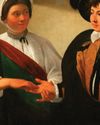
Fingers, frog's and fairies
Fortune telling was all the rage in the 16th and 17th centuries, and practitioners would stop at nothing to tap in to the supernatural. Martha McGill tells a story of Highland seers, tarot cards and encounters with the spirit world
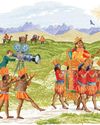
Nothing matches being with Alexander the Great on foot in the Hindu Kush
AT OUR LITTLE FILM COMPANY, MAYA VISION, we recently took the decision to digitise all of the rushes of our key films so that we could dispose of hundreds of boxes of tapes that had been kept in storage, throwing out stuff we thought we would never need again.
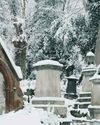
Library of the dead
Highgate Cemetery, created as a fashionable resting place for wealthy Victorian dead, is a veritable who's who of London's great and good. PETER ROSS roams the avenues of this most atmospheric necropolis
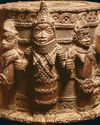
Slavery, exploitation and racism. These tragedies have long dominated histories of Africa. But there's another way to tell this story. And it's one that puts Africans right at the centre of their continent's extraordinarily rich and vibrant past
An 1414, in the Chinese city of Nanjing, a giraffe caused a stir. Amid a crowd of shocked, noble spectators, an official, leading the creature via a rope tied round its face, presented it to China's Yongle emperor. His officials said it was a qilin - an auspicious unicorn - which his sage governance had made appear.
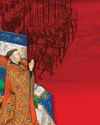
England's forgotten hero
When the Hundred Years' War was reaching a climax, one man was fighting tenaciously to secure the English claim to the French crown. So why, asks Joanna Arman, is Henry V's formidable brother, John, Duke of Bedford, not better known?
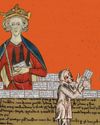
HENRY III AND THE MAGNA CARTA THAT MATTERED
King John's sealing of a charter at Runnymede in 1215 is one of the most feted moments of the Middle Ages. Yet, writes David Carpenter, it was the charter issued by his son 10 years later that became fundamental to England's history
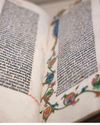
Gutenberg publishes a pioneering new book
‘The printing press triggers an information revolution
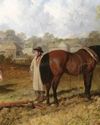
How empire ruptured rural Britain
We know that enslaved Africans and their descendants suffered in the distant colonies of empire. But, as Corinne Fowler explains, the colonial system also had dire impacts on people in the countryside of the 'motherland'
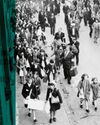
"I FELT VERY ALONE IN A WORLD GONE HORRIBLY MAD"
It was a moment of possibilities, dislocation and dread. Dan Todman tells the story of the 1.5 million urban Britons evacuated to the countryside at the start of the Second World War